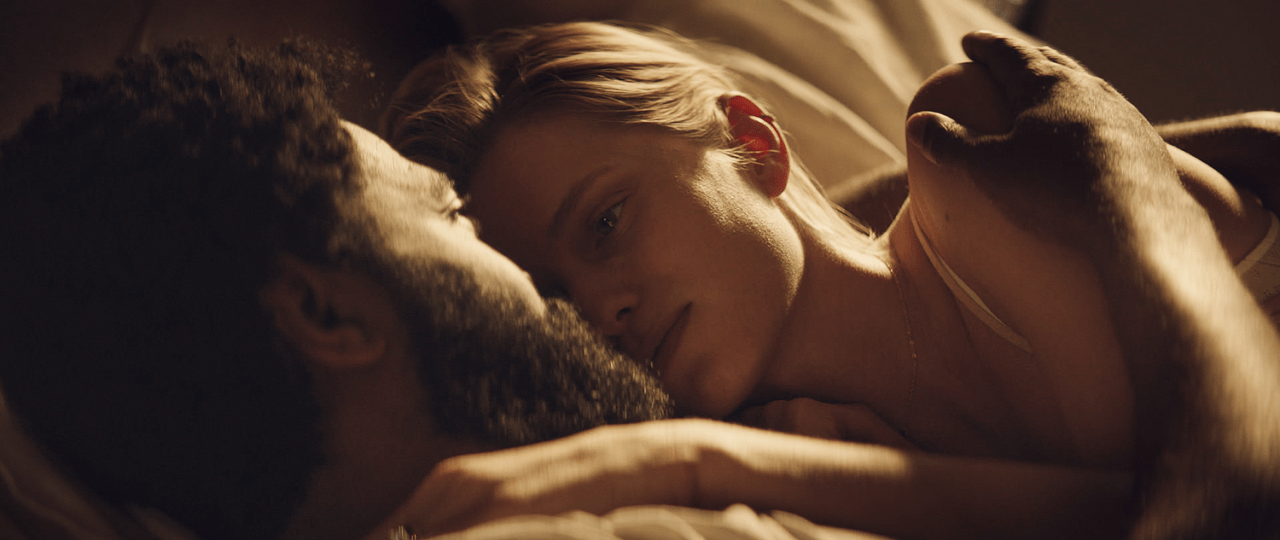
On the face of it, Beth seemed that most old-fashioned of TV genres: the single play. In fact, Monday’s programme was the complete version of a three-parter made for YouTube and excitedly announced as Channel 4’s first-ever digital commission. A less excited interpretation, however, might be that it was Channel 4’s first sign of surrender to the hostile forces of streaming now threatening all of Britain’s terrestrial networks. Either way, it was a peculiar watch that, over the course of its 36 minutes, felt less like a fully fledged drama than notes towards one.
In a nervous bid to ensure YouTube viewers were gripped before they could search for something else, it began with a good-looking couple having sex. But not for long. Within 50 seconds, the man, Joe, noticed blood on the sheets and the woman, Molly, realised she’d had the latest in a series of miscarriages. Seconds after that, the pair were visiting their hunky private doctor who advised them to knock off the IVF, in favour of ‘lots of sex’: advice he bestowed with a distinct leer in Molly’s direction.
Following the consultation, Joe and Molly (Nicholas Pinnock and Abbey Lee) wondered about adoption or fostering, but as an interracial couple, decided they wanted ‘our kid to look like both of us’. In one of these ‘notes towards’ moments, it also appeared that Joe himself had been unhappily fostered. But of course there wasn’t time to get into that and instead the first 12-minute section ended with Molly suddenly pregnant.
Once she was, there were some more hints at a theme the show would clearly have liked to explore in more depth, in this case Joe’s class unease about having a much posher partner. Yet, no sooner was this suggested than we cut to the delivery room, where Molly gave birth to a white baby – moments later, a white primary-school girl whom Joe, now separated from Molly, was picking up from a party.
Despite his (and our) suspicions, the reason for the child’s colour wasn’t the pervy doctor, but something wholly unguessable which relied on a lurch into the supernatural that I’d better not spoil, but that, once again, the show didn’t have time either to prepare us for or to reflect on, and so simply plonked in front of us.
Beth was by no means a disaster. The two leads did their considerable best with what they had to work on – as did the script, which often managed to be intriguing before the time constraints rendered it merely frustrating. Nonetheless, you couldn’t help thinking how much more could have been done with the material in a mini-series that wasn’t quite so mini. If this was a glimpse of the terrestrial-TV future, the best you can say is that its programmes certainly won’t overstay their welcome; the worst is that they’ll be badly lacking in the swagger and storytelling confidence of the pre-streaming era.
Still, if it’s old-fashioned you want, there’s always Not Going Out – the longest-running sitcom now on British television and by some distance the most traditional.
There remains something almost heroic about Mack’s determination to keep the British-sitcom faith
Defending his chosen form, its creator Lee Mack said recently: ‘The thing you always hear people say about studio sitcoms is: “They’re so 1970s.” But then you ask people to name their favourite British sitcoms and they’re all from the 1970s: Fawlty Towers, Dad’s Army, Steptoe and Son.’
Sadly, I’m not convinced that many of these ‘people’ would be under 50. But there remains something almost heroic about Mack’s determination to keep the British-sitcom faith, especially as he can get at least as many laughs from his lightning ad-libs on Would I Lie to You? without any of the hard writing yards required here.
Even so, it’s not quite true, despite those references, that the show’s influences are all British – because it’s too full of wisecracks for that. Captain Mainwaring, Basil Fawlty and the Steptoes would be wildly indignant if they knew we were laughing at them, whereas the characters in Not Going Out (like those in say Cheers and Frasier) constantly make remarks that are intended to be funny.
So it was that the 14th series started with the fictional Lee and his wife Lucy (Sally Bretton) being shown round a property by a seller who doubled as a straight man setting up Lee and Lucy’s stream of one-liners – which carried on just as relentlessly once the episode developed into a full-blown, well-plotted farce based, naturally, on implausible lies, implausibly believed.
I can’t claim that Not Going Out is among my weekly unmissables (unlike Would I Lie to You?). But I’m definitely delighted that Mack continues to fly the flag for a sitcom that has no desire to throw in some dark drama to provide an edifying moral lesson – or indeed to do anything much beyond making us laugh.








Comments